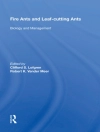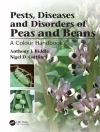Since the first commercial introduction of transgenic corn plants in 1995, biotechnology has provided enormous benefits to agricultural crop production. Research is underway to develop a much broader range of genetically engineered organisms (GEOs), including fish, trees, microbes, and insects, that could have the potential to transform fields such as aquaculture, biofuels production, bioremediation, biocontrol, and even the production of pharmaceuticals . However, biotechnology is not without risk and continues to be an extremely controversial topic. Chief among the concerns is the potential ecological effects of GEOs that interact with wildlife and habitats.The U.S. Geological Survey (USGS) is charged with providing scientific advice to inform federal agencies that manage wildlife and their habitats. USGS has identified biotechnology as one of its major challenges for future research. Seeing an opportunity to initiate a dialogue between ecologists and developers of GEOs about this challenge, the USGS and the National Research Council (NRC) held a two-day workshop in November of 2007, to identify research activities with the greatest potential to provide the information needed to assess the ecological effects of GEOs on wildlife and habitats. The workshop, designed to approach the research questions from a habitat, rather than transgenic organism, perspective, is summarized in this book.
Board on Agriculture and Natural Resources & Division on Earth and Life Studies
Genetically Engineered Organisms, Wildlife, and Habitat [EPUB ebook]
A Workshop Summary
Genetically Engineered Organisms, Wildlife, and Habitat [EPUB ebook]
A Workshop Summary
قم بشراء هذا الكتاب الإلكتروني واحصل على كتاب آخر مجانًا!
لغة الإنجليزية ● شكل EPUB ● صفحات 84 ● ISBN 9780309178402 ● محرر Paula Tarnapol Whitacre ● الناشر National Academies Press ● نشرت 2008 ● للتحميل 3 مرات ● دقة EUR ● هوية شخصية 7142897 ● حماية النسخ Adobe DRM
يتطلب قارئ الكتاب الاليكتروني قادرة DRM












